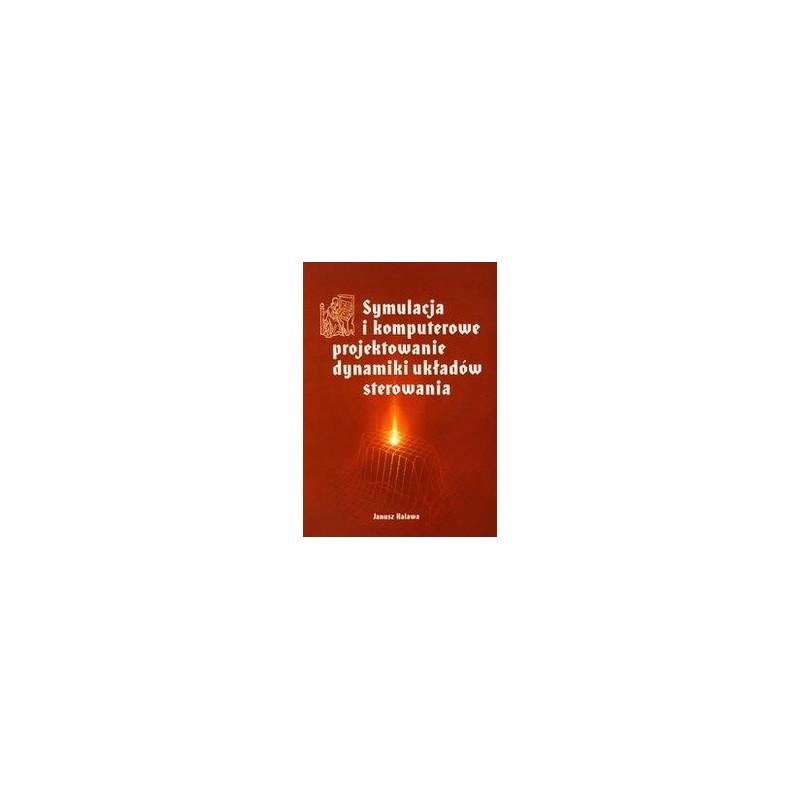- Out-of-Stock



Janusz Halawa
Programs for performing activities on mathematical expressions (eg Mathematica) are getting better and better. In order to effectively use computing capabilities of computers, it is necessary to master the theoretical foundations of the dynamics of systems and their programming.
This monograph is devoted to this goal. It contains elements of the theory of differential and differential equations, ordinary and partial, which are designed to help the reader to understand the graphs of object responses and closed control systems.
Part of the monograph is devoted to the control of objects with a delay. The choice of parameters of regulators controlling these objects is more complicated than in the case of objects without delays. To determine the parameters of regulators in closed systems containing objects with delay, the author used some of his own solutions, hoping that they will find application in engineering practice.
Table of Contents
Introduction
1. The principle of the smallest operation
2. Lagrange method
3. Determination of simplified mathematical models from the laws of physics
4. Differential equations describing the basic control objects
5. Simulation of circuits described with transmittances
6. Non-linear systems
7. Determination of simplified models
8. Closed control system
9. Determination of controller parameters
10. Sensitivity coefficients
11. Systems with delay
12. Differential equations
13. Notes on the dynamics of impulse systems
14. Extreme regulation
15. Adaptive control system
16. Introduction to fuzzy sets
17. Introduction to numerical integration
18. Formulas for numerical calculation of first order derivatives with the help of 3 and 4 points
19. Partial equations
20. Selected activities in the Mathematica program
21. Literature.
Needle bending needle, for precise glue application, Flux 1.60mm internal diameter and 2,108mm outside diameter
No product available!
Needle bending needle, for precise glue application, Flux 1,372mm internal diameter and 1,829mm outside diameter
No product available!
Needle bending needle, for precise glue application, Flux 1,194mm internal diameter and 1,651mm outside diameter
No product available!
Needle bending needle, for precise glue application, Flux 0.84mm internal diameter and 1,26mm outside diameter
No product available!
Needle bending needle, for precise glue application, Flux 0.686mm internal diameter and 1,067mm outside diameter
No product available!
Needle bending needle, for precise glue application, Flux 0.603mm internal diameter and 0,9081mm outside diameter
No product available!
Needle bending needle, for precise glue application, Flux 0.514mm internal diameter and 0,8192mm outside diameter
No product available!
Needle bending needle, for precise glue application, Flux 0.413mm internal diameter and 0,7176mm outside diameter
No product available!
Needle bending needle, for precise glue application, Flux 0.337mm internal diameter and 0,6414mm outside diameter
No product available!
Needle bending needle, for precise glue application, Flux 0,311mm internal diameter and 1.26mm outside diameter
No product available!
Needle bending needle, for precise glue application, Flux 0.25mm internal diameter and 0,5144mm outside diameter
No product available!
Needle bending needle, for precise glue application, Flux 0,26mm internal diameter and 0,4636mm outside diameter
No product available!
Needle bending needle, for precise glue application, Flux 0,21mm internal diameter and 1.26mm outside diameter
No product available!
Needle bending needle, for precise glue application, Flux 0.81mm internal diameter and 1.26mm outside diameter
No product available!
Silicone protective case for the Huskylens vision module. It was made of a soft and flexible material, it perfectly fits the shape of the tile. DFRobot FIT0647
No product available!
Module with a CCS811 air quality sensor for measuring the concentration of carbon dioxide (CO2) and volatile organic compounds (VOC) in the air. It communicates via the I2C interface. DFRobot SEN0339
No product available!

Janusz Halawa
